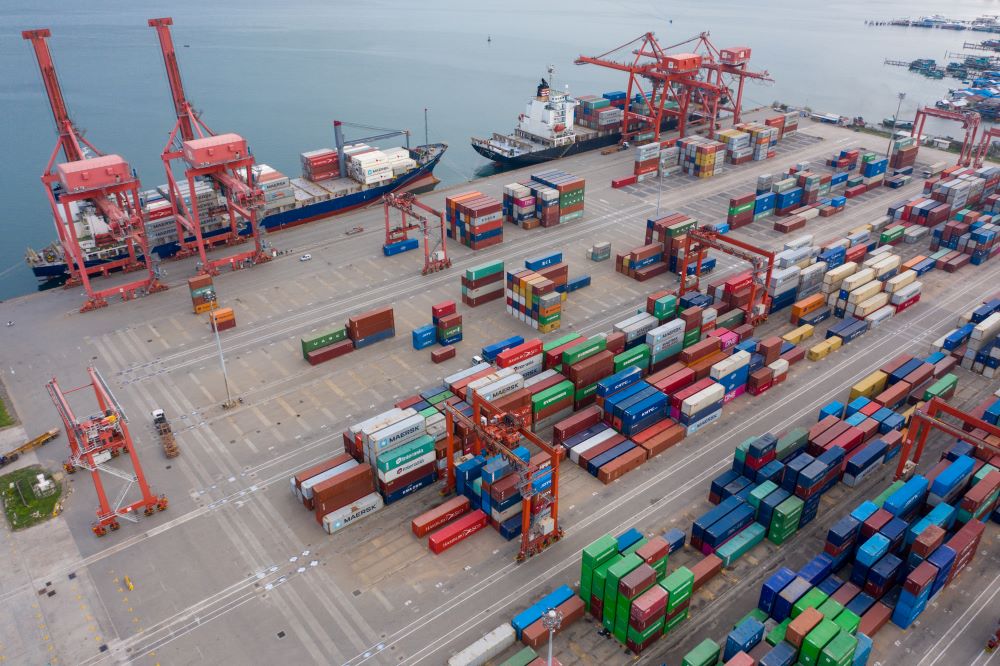
Yesterday (10 January) the business and trade committee held the third evidence session of its ongoing inquiry into the performance of the UK’s investment zones and freeports.
Following a submission from Institute of Export and International Trade (IOE&IT) director of strategic projects and international development Kevin Shakespeare in October, this session saw Levelling Up secretary Michael Gove was delivering insight into how different regions’ freeports and investment zones have fared.
Alongside minister for investment Lord Dominic Johnson, Gove spoke of the government’s approach to investment, empowering local government and encouraging growth across a full range of target sectors.
Overview
Freeports offer economic incentives, such as tax relief and a relaxation of standard customs rules, to stimulate trade, investment and regeneration.
Freeport sites – of which there are currently 12 in the UK – aim to enable development through a joint venture of local authorities and private partners.
They differ slightly from investment zones, which are designed to promote growth through a more targeted approach to growing specific sectors and addressing regional inequalities.
The inquiry into the impact of freeports and investment zones, how they’ve benefited the surrounding area and the best benchmarks to measure their effectiveness in future, began at the end of last year with two industry-input sessions.
Freeport value
Gove began by describing both freeports and investment zones as “essential tools” of levelling up, saying that they were vital to tackling the dual problems of productivity and investment disparities between the South East’s “golden triangle” – London, Oxford and Cambridge – and the rest of the UK and creating a “new future” for former industrial regions.
Areas like Yorkshire, Liverpool and the North East of England, which have experienced economic decline after deindustrialising, are ideal beneficiaries of the projects’ combination of educational upskilling, centring of local leadership and private sector engagement, he added.
Lord Johnson echoed this sentiment. Telling the committee of the positive reaction he’d received from investors, he said UK freeports are “enormously powerful in acting as a hook for me to go out and sell opportunities internationally”.
“[Investors are] very excited about what UK has to offer, because it's about innovation and advanced manufacturing in the future.
“We're really leveraging off our ‘sunset industries’ in order to create our ‘sunrise industries’.”
Striking the balance
Gove was asked to clarify his stance on the nature of government intervention.
He said it was important the government doesn’t overstep and force the direction of investment. However, he also dismissed an untargeted approach to deregulation, saying it’s not enough “to simply deregulate and hope that the world will notice”.
He described the government’s approach as laying a strong foundation for investment, requiring a low-tax environment – citing the UK as having the lowest corporation tax – and policies that promote areas with “latent potential, skilled workforces with institutions that can play a big part” in freeport projects.
“The soil is irrigated so that the private sector invests there.”
He pointed towards the £2.9bn investment UK freeports have attracted and 6,000 jobs created as evidence of the right approach.
Empowering local leaders
One government strategy is to empower metro mayors – leaders of larger local authorities – to make more decisions for their regions.
He highlighted the connection between investment zones and local government structure, noting that they’re “overwhelmingly located in core cities, where there are now mayoral combined authorities”.
Praising the work of metro mayors Andy Burnham, Andy Street and Ben Houchen, he said that central government needs to “provide a platform for stronger civic leadership, and provide the tools for mayors in those areas to make a difference themselves”.
Transport infrastructure, control over which metro mayors are usually accorded, was cited as a key example.
Sectoral spread
However, Gove also noted the need to direct existing freeport regions towards a range of sectors, aligning with chancellor Jeremy Hunt’s prioritisation of key sectors for growth: life sciences, advanced manufacturing, renewable energy, creative industries and financial services.
Although he said he “could understand the stampede towards renewables” as a high growth sector with the potential to create a lot of green jobs, it was important that some regions with investment zones act concentrate their energy on other sectors.
In this regard, he noted the benefit of an area containing both freeport and investment zone, allowing regions to target a different sector with each, effectively “putting their money on both red and black”.
He cited Tees Valley as a great example of this, with the Teesside freeport playing “a significant part in attracting green industrial jobs” to the region, enabling it to pursue creative sector growth through its investment zone.
Teesside inquiry
However, it wasn’t all positive for the North East, as the session ended with a protracted discussion on whether a date would be called for an inquiry into allegations of corruption at Teesside freeport.
Gove first agreed to an inquiry last Summer, agreeing to an independent review of operations after calls for a formal National Audit Office investigation.
Facing accusations of cronyism from MP for Wansbeck, Ian Lavery, Gove insisted there would be “a proper and rigorous inquiry to get to the root of things”, although he did not set a date.
